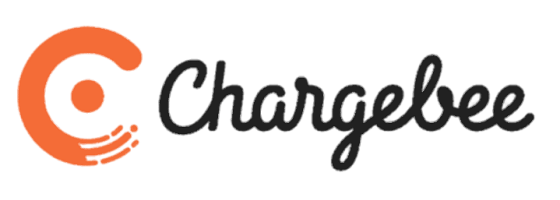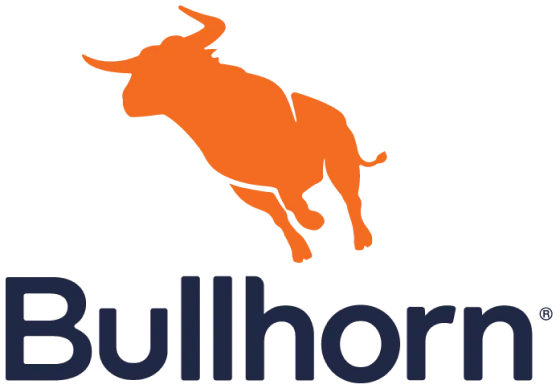
Workbooks 2025 CRM Review: Drawbacks, Pros, Cost and more
My Verdict
- Easy customization to fit specific needs
- Wide range of features for various business operations
- Responsive support team
- Comprehensive training resources for smooth learning
- It has a steep learning curve initially
- Occasional bugs and clunky behavior
- Limited scalability, especially in storage
Pricing
CRM Edition
Business Edition
Events Edition
What Does Workbooks CRM Do?
Workbooks CRM is built for small to medium-sized businesses and stands out with its affordability and powerful features. It’s designed to streamline operations across sales, customer service, and more, tailoring its tools to meet industry-specific challenges effectively.
Its true strength lies in its combination of cost-effectiveness and a comprehensive suite of features that handle everything from marketing campaigns to customer interactions and data analytics.
This CRM supports detailed campaign planning, ROI tracking, and informed decision-making with actionable insights. Its adaptability shows in its seamless integration with existing systems, boosting efficiency without requiring heavy customization.
Diving into Workbooks CRM, you’ll discover how its features and integrations enhance your business operations, offering a valuable tool for anyone aiming to maximize their CRM investment. It keeps pace with your company and propels it forward through detailed insights and efficient processes.
Key Features of Workbooks CRM
Workbooks CRM brings several features designed to enhance efficiency and improve various business functions. Its standout capabilities include advanced marketing automation, comprehensive customer service tools, and precise reporting functionalities. In the following sections of this review, I’ll explore how each feature can specifically help streamline operations and spur growth.
Contact Management
Contact management sits at the core of Workbooks CRM, blending deep functionality with ease of use. Here’s why it shines:
- Detailed Profiling and Segmentation: Workbooks CRM manages contact details thoroughly, which is crucial for dividing contacts by different criteria. This organization aids in focused marketing and bespoke customer interactions.
- Communication Tracking: A standout feature is its comprehensive tracking of communications, from emails and calls to meetings. Every interaction is recorded, ensuring no details are missed and facilitating timely follow-ups, which are vital for sustaining solid customer relationships.
- Relationship Building Tools: Workbooks CRM is a powerhouse for fostering long-term customer connections. With tools for event management, seamless email, productivity software integration, and extensive customer activity logs, it enables sales teams to tailor their approach.
Pipeline Management
When I consider crucial CRM features, robust pipeline management consistently ranks high. Workbooks CRM excels in this area with standout features in opportunity tracking, sales stage customization, and visual data representation.
- Opportunity Tracking: Effective opportunity tracking is vital for sales success. Workbooks CRM ensures detailed logging and integration across communication platforms, capturing every interaction to prevent missed opportunities.
- Sales Stages Customization: Tailoring sales stages to fit your specific process is seamless with Workbooks CRM, enhancing progress tracking and adapting to shifts in sales tactics and market conditions.
- Visual Representation: For visual learners, Workbooks CRM’s graphical data display simplifies complex information. Its intuitive dashboards offer real-time insights for quick, informed decision-making.

Marketing Automation
Marketing automation with Workbooks CRM puts you in control while automating your marketing campaigns. Here’s how it enhances various aspects:
- Campaign Management: Workbooks make starting and managing campaigns easy. I can quickly launch, monitor, and adjust campaigns, integrating various marketing tools for a cohesive approach. The unified dashboard provides clear insights into campaign metrics, allowing for on-the-fly adjustments.
- Lead Nurturing: Automation here means significant time savings. Features like lead scoring and segmentation allow me to focus on the most promising leads with tailored follow-ups. This system ensures that every potential customer receives the right message at the right time.
- Marketing Analytics: Workbooks excel in delivering actionable insights from marketing data. It offers detailed metrics and reports that reveal the effectiveness of campaigns, helping me pinpoint and enhance areas of impact to maximize returns.

Available Integrations
Workbooks CRM isn’t only for managing sales pipelines; its true power emerges when linked with my daily tools. It connects seamlessly with various platforms, smoothing workflows and boosting data accessibility. Below are essential integrations that I find indispensable:
- Google Workspace
- Microsoft 365
- Zapier
- Scribe
- Nextiva
- HubSpot
- Mailchimp
- Twilio
- Eventbrite
- WordPress
Pricing Plan
Let’s dive into Workbooks CRM’s pricing options, designed to suit diverse needs and budgets. I recently explored their pricing tiers, and here’s a breakdown of what stands out for anyone thinking about this CRM:
- CRM Edition: Priced at $43 per user per month, this package offers essential CRM functionalities such as managing contacts, tracking activities, and managing sales pipelines. It’s an excellent choice for those requiring the basic tools plus additional features like integration with Office 365.
- Business Edition: This plan goes beyond the basics at $88 per user per month. You gain access to critical business tools for managing sales orders, supplier purchase orders, contracts, and invoices. This is perfect for businesses with more intricate operations.
- Events Edition: This edition is tailored for event organizers and costs $183 per monthly user. It builds on the Business Edition by adding features essential for event promotion, ticket sales, and attendee management. It’s the ultimate tool for those who run frequent events.
Is Workbooks CRM Easy to Use?
Workbooks CRM excels as a straightforward platform, ideal for streamlining customer management.
Its interface stands out for its clarity and simplicity, allowing users to focus more on their work and less on figuring out complex procedures. The clean and organized layout offers easy access to essential tools that boost daily tasks.
Starting with Workbooks CRM is a breeze. The company provides various tailored training resources that support beginners and seasoned users. These include step-by-step guides, instructional videos, and an interactive demo on their website with no strings attached.
This demo is especially beneficial for those considering the CRM, as it gives a practical preview of what working with the system would be like, showcasing its functionality and user-friendliness.
Moreover, the onboarding process is smooth, supported by a responsive help team that is ready to answer any questions. Workbooks ensures effective learning through a robust knowledge base, empowering users to master the CRM swiftly.
This dedication to thorough training and accessible support highlights Workbooks’ commitment to customer satisfaction and streamlined operations.
Which Companies Use Workbooks CRM?
I’ve spotted notable names spanning diverse industries utilizing Workbooks CRM to streamline operations. It’s fascinating to witness the tool’s versatility, seamlessly adapting to various sectors. Here are some examples:
- Rotary Corporation
- STV
- Eilersen
- XPS Pensions
- Forum Events
- IR Media
- BPL Plasma
- APL Media
Last Thoughts
Workbooks CRM shines for businesses seeking a cost-effective yet feature-packed CRM. It’s an ideal pick if you’re aiming to boost efficiency without a hefty price tag. From my experience, it expertly balances rich features with affordability, positioning it as a wise choice for budget-conscious, smart businesses.





















